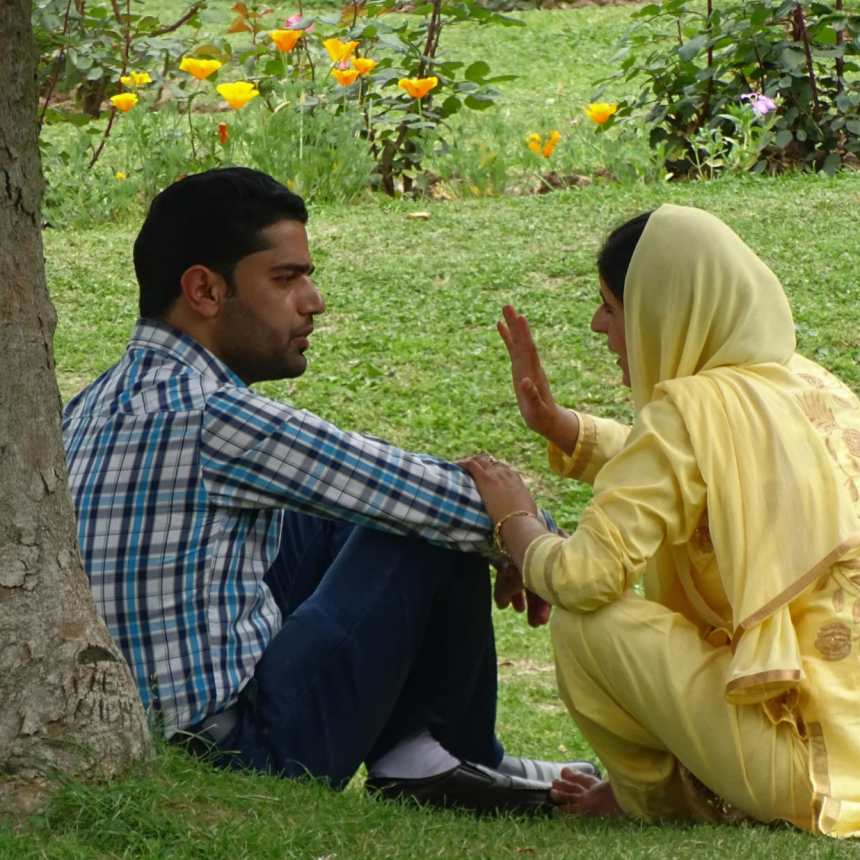Unveiling Factors Behind Marital Struggles in Kashmir
Peerzada Masrat Shah
The stunning beauty of Kashmir conceals a disconcerting truth – an upward trajectory in marital breakdowns. This shift is driven by a host of factors that necessitate a meticulous dissection. This article meticulously probes into the core elements contributing to the escalating rates of marital discord in the region, encompassing sociocultural norms, economic pressures, and psychological intricacies.
Socio-Cultural Factors
Marital turbulence in Kashmir finds its roots intertwined with socio-cultural intricacies. Traditional norms and conservative values often stifle open dialogues, impeding the forging of strong emotional bonds between partners. The prevailing patriarchal structure accentuates male expectations, curtailing women’s autonomy and triggering sentiments of neglect and disillusionment. Furthermore, the inclination towards endogamous unions, orchestrated by parents, can fuel disparities in values and compatibility, generating strain within relationships.
Economic Pressures
Economic duress significantly fuels marital dissonance in Kashmir. The region’s longstanding political turmoil has dealt severe blows to its economic stability. High unemployment rates and financial scarcity act as breeding grounds for tensions within marital unions. Financial constraints morph into frustration, as couples grapple with unmet expectations and basic necessities. The resultant toll on mental well-being escalates conflicts, amplifying the probability of dissatisfaction and eventual marital dissolution.
Psychological Factors
Psychological factors form an integral aspect in comprehending the disintegration of unions in Kashmir. Burdened by societal expectations, such as conforming to rigid gender roles, individuals wrestle with feelings of entrapment and exasperation. Stress, anxiety, and depression stemming from these psychological battles erode emotional accessibility and effective communication between partners. Additionally, unresolved traumas, triggered by prolonged conflict and political instability, erode the capacity to establish secure attachment bonds, eroding the foundation of marital stability.
Marital disintegration in Kashmir emanates from a labyrinth of intertwined factors. Sociocultural barriers, economic tribulations, and psychological burdens coalesce to erode the bedrock of marital harmony. Grasping these fundamental elements is a precursor to devising effective strategies to mitigate this issue. Educational initiatives fostering open dialogue, bolstering financial stability, and furnishing psychological support can alleviate marital strains. By addressing these components, society can pave the way for more resilient relationships, ultimately enhancing the holistic well-being of individuals within the region.
Lack Of Clarity Regarding Relationship Goals
In the realm of professional relationships, one common challenge that often arises is the lack of clarity regarding relationship goals. This issue stems from various factors, including miscommunication, differing expectations, and inadequate planning. Without a clear understanding of the shared objectives and desired outcomes, individuals involved in professional relationships may find themselves struggling to align their efforts effectively, resulting in inefficiency and potential conflicts.
Moreover, ambiguity surrounding relationship goals can hinder progress and impede success in collaborative projects or partnerships. To address this issue, it is imperative for parties involved to engage in open and transparent communication early on, establishing a shared vision and defining clear objectives for the relationship. This process should involve identifying key milestones or metrics for measuring progress as well as regularly revisiting and revising goals as circumstances evolve.
By fostering clarity regarding relationship goals from the outset and maintaining effective communication channels throughout its duration, professionals can enhance productivity, cooperation, and ultimately bolster their chances of achieving long-term success in collaborative endeavors.
Extramarital Affairs
Extramarital affairs, also known as infidelity or cheating, refer to romantic or sexual relationships that occur outside of a committed marriage or partnership. While views on this topic vary depending on cultural, religious, and personal beliefs, it is generally considered unethical and damaging to the core principles of trust and fidelity within a marriage. From a professional standpoint, extramarital affairs can have significant consequences in various areas of an individual’s life.
In addition to potentially leading to relationship breakdowns and divorce, they can cause emotional distress and harm the well-being of all parties involved, including children if present. Furthermore, such incidents often have far-reaching effects on professional reputations and careers when they become public knowledge. It is crucial for individuals in positions of authority or responsibility to uphold ethical conduct both personally and professionally by prioritizing open communication, seeking counseling when needed, and adhering to commitments made in marital agreements.
Domestic Abuse
Domestic abuse is a grave issue that permeates societies across the globe, undermining the stability and well-being of countless individuals and families. It refers to a pattern of coercive behavior used by one intimate partner against another, typically involving physical, sexual, emotional, or economic abuse. This insidious act knows no boundaries – it transcends race, socio-economic status, and educational background. Perpetrators often manipulate their victims through tactics such as intimidation, isolation, and control, leaving them trapped in a cycle of fear and dependency.
The consequences are far-reaching. Tthey not only inflict immediate harm but also have long-lasting implications for survivors’ mental and physical health. Domestic abuse demands our urgent attention to raise awareness, promote prevention strategies, provide training to professionals who come into contact with victims at risk or experiencing abuse, and ensure that comprehensive support systems are in place to assist survivors in breaking free from this cycle of violence.
—————————————–




